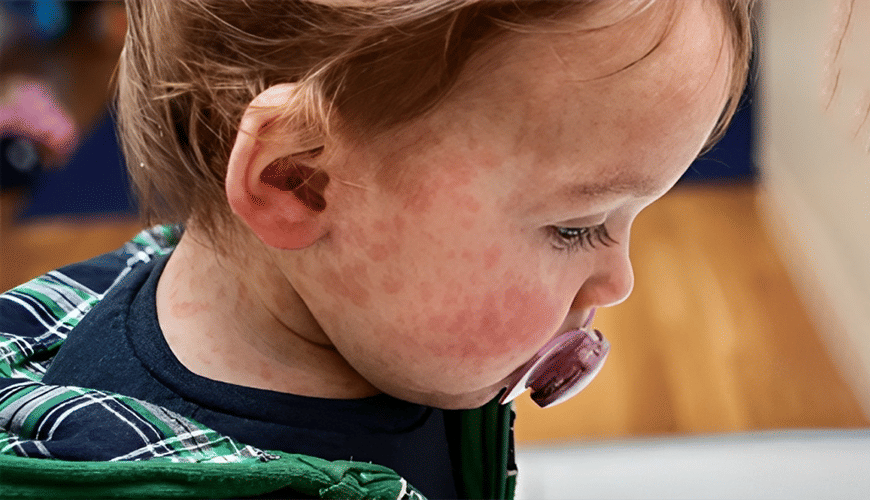
Signs & symptoms of a food allergy
Food allergies can cause a range of symptoms that can vary from mild to severe. It’s important to be aware of the signs and symptoms of a food allergy so that you can identify an allergic reaction and seek medical attention if necessary. Here are some of the common signs and symptoms of a food allergy:
- Skin reactions
Skin reactions are a common symptom of food allergies. These may include hives, itching, and swelling of the lips, tongue, and throat. In severe cases, a food allergy can cause anaphylaxis, which is a life-threatening allergic reaction that can cause swelling of the airways and difficulty breathing.
- Digestive problems
Digestive problems such as nausea, vomiting, and diarrhea are also common symptoms of food allergies. These symptoms can occur within minutes or hours after consuming a food allergen.
- Respiratory symptoms
Respiratory symptoms such as wheezing, coughing, and shortness of breath can occur in people with food allergies. These symptoms can be severe and require immediate medical attention.
- Cardiovascular symptoms
In rare cases, food allergies can cause cardiovascular symptoms such as low blood pressure and rapid heart rate. These symptoms can be life-threatening and require immediate medical attention.
- Behavioral symptoms
Food allergies can also cause behavioral symptoms such as irritability, anxiety, and confusion. These symptoms are more common in children and may be a sign of an allergic reaction.
It’s important to note that the symptoms of a food allergy can vary from person to person and can be unpredictable. Some people may experience only mild symptoms, while others may experience severe symptoms that require immediate medical attention. It’s also possible for a person to develop a food allergy at any point in their life, even if they have eaten the food in the past without any problems.
Food allergies can cause a range of symptoms that can vary from mild to severe. It’s important to be aware of the signs and symptoms of a food allergy so that you can identify an allergic reaction and seek medical attention if necessary. If you suspect that you have a food allergy, talk to your doctor about getting tested and developing a plan to manage your allergy.
Thanks for reading!

